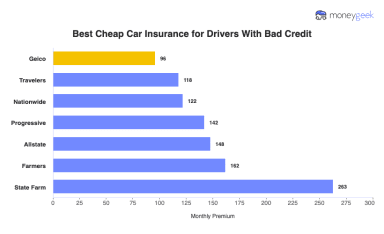Co-Operative provides Vermont’s cheapest full coverage at $604 a year, or about $50 a month, giving drivers a 32% savings compared to the state average. Union Mutual follows closely at $635 a year, making the competition for the top spot fairly tight. State Farm comes in at $665 annually, while Vermont Mutual charges $745 for the same level of protection.
Drivers who want to stay with a regional provider can still find dependable rates through Vermont Mutual, even with its slightly higher pricing.











